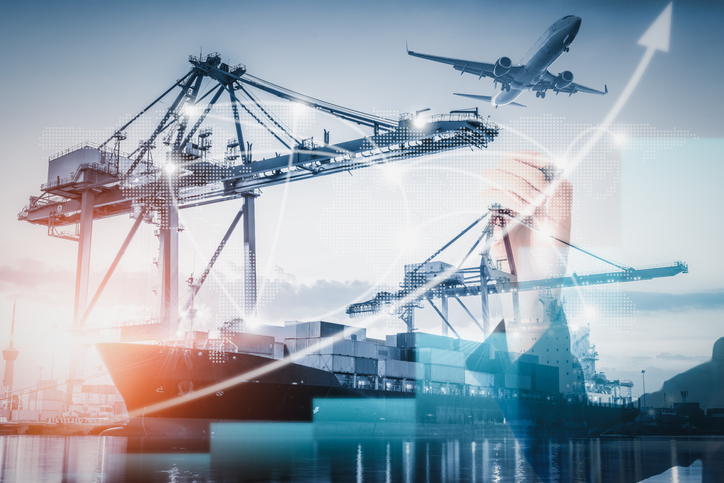
© 12963734/iStock/Getty Images Plus
The cost of global trade is surging, and there are no signs of it slowing down. After all, the grand reopening in the US and Europe after months of Covid-19 lockdowns has unleashed pent-up demand, and companies are racing to restock in response. With lingering supply-chain bottlenecks, especially shortages of shipping containers themselves, plus the longest delays seen in a decade, prices are galloping off to record highs. By mid-July, the going rates for containers to ship goods from Shanghai to Los Angeles were 236% higher than a year ago; from Shanghai to Rotterdam, they were an eye-watering 595% higher.
The bottlenecks aren’t going anywhere: In the short term, the uneven global recovery and limited alternatives to ocean freight will mean that prices will remain high, especially since it can take a year and a half to build a new ship, and the industry has seen underinvestment for years. And while the fall in global tariffs should help, having already reversed nearly one third of the rise seen under the Trump administration, it won’t be enough if continued tensions, especially between the US and China, lead to more non-tariff barriers.
At the same time, demand is only going up, with a new infrastructure cycle, trillions of dollars in fiscal stimuli and a sizable chunk of excess savings just waiting to be spent. So who’s going to pay the biggest price? Europe is already feeling the pinch as its later reopening allowed US companies to get to the front of the line: as a result, while goods shipments from Asia to the USA are currently growing by around 30%, those to Europe are only increasing by around 10%. Most countries in Europe, and especially Germany, are struggling to restock already low levels of inventories.
After the Covid-19-related supply disruptions of 2020, this is the second shock to global supply chains in a short time. High time, then, for a reconfiguration. In the future, resilience will take precedence over efficiency. But don’t draw the wrong lessons for globalization.
Global supply chains can break – but not because they are global, but because they are supply chains –and chains can break. Closing the Brenner highway is just as fatal for the European auto industry as blocking the Suez Canal. Chemical parks are currently under water – in Germany. It would be naïve to assume that on-shoring or near-shoring alone could solve the problem of resilience. Instead, it is crucial to work in partnership with suppliers – from joint development to equity investments – in order to create reliability and trust. If you see suppliers as just a counterpart to squeeze every last penny out of, you shouldn't be surprised if supply chains break down in challenging times like these. For resilience, this partnership approach is crucial; geographical proximity or even the nationality of the partners plays (almost) no role.
Nevertheless, the justified call for greater resilience is also mingled with irritating tones about national supply security. What used to hold at best for food security is now being applied to many areas, from chips and batteries to artificial intelligence. The example of computer chips is particularly instructive. Even if there is no local demand (beyond the acute shortage), Europe is flirting with building large manufacturing capacities – in order to reduce its supposed dependence on Asian producers. This is not very effective. It ignores the fundamental insight into the gains of trade, the theory of comparative advantage: Instead of trying to catch up with the Asian lead in production, Europe should concentrate on its strengths; in the case of chips, on design and the machines to produce them. After all, the idea of the "self-sufficient" Asians is just as misguided. Without American know-how in development and European production machines, the factories in Taiwan would not run. The dependencies are mutual.
The secret longing for de-coupling in the world economy is a break with earlier convictions. In the days of the Cold War, the doctrine of "change through trade" (“Wandel durch Handel”) still applied: economic exchange was seen as a proven means of minimizing the risk of political and even military conflict. Today, political tensions – especially between China and the U.S. – are seen as a pretext to the dismantling of economic ties. It would be fatal if the Covid-19 crisis – in addition to all the other suffering – were to lead to an acceleration of this process. Throwing the baby out with the bathwater has never been a good idea. Global supply chains not only follow the irrefutable logic of trade as an engine of prosperity. They also make the world safer.
Ludovic Subran is Chief Economist of Euler Hermes and Allianz.